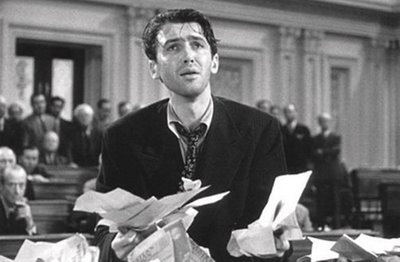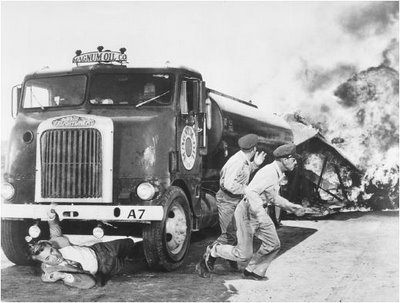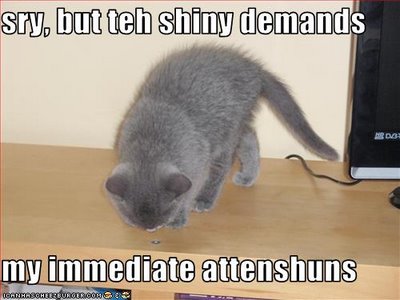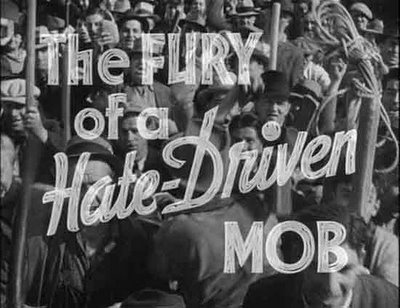How to Run a Plot – XP Style
How to Run a Plot – XP Style
So you’ve decided to embark on the journey of a lifetime. You’ve decided to run your very first plot for XP. But first, you need to figure out your plot, then conscript your loggers, submit the Application while following the Plot Guidelines, and then actually log the thing. Since this is a new plot and you’ve never done this before, you’re at a loss. What in the hell do you do now? Fear not! This is why we’ve compiled our collective wisdom and offer you this nifty how-to guide for running your first plot!
We generally know what we’re doing. Really.
Creating a Plot
First things first. When coming up with a first plot, keeping it simple is usually the best solution. Don’t bite off more than you can chew. Complex plots take time, energy, and often drive seasoned players to the brink of insanity. We still have no idea how Alicia pulled off Thermopylae either.
Keep it simple. This will not be you.
When coming up with a plot idea, keep these things in mind:
- What’s your goal? – What do you want to get out this plot? Are you introducing a PC or a new villain? Are you having your PC learn or grow from the experience? Or do you really just want to blow things up? Be sure you have that in mind and communicate it to your players. Make sure you ask about their goals for their characters as well.
- Who’s in it? – Discuss things with the other players beforehand. Post an open call on the group or XPP if necessary. But be aware that this game has 30+ players and too many characters can make a plot unwieldy. Always aim for the minimum you think you can handle. You can always work with someone in the next plot you do.
- Make sure everyone has something to do – Otherwise what’s the point of having someone there? Unhappy players make for some unhappy logging, so communicate with everyone and make sure they’re getting something out of it.
- Take into account your NPCs. - Are they a major villain or a one-off character? For somebody major, talk to their Sockers or in the case of a new NPC, make sure you have a socker for them unless they’re someone like security guard #2.
- What’s going to happen in the aftermath of the plot? - Always include them and discuss with your players in order to get a bigger picture. Be aware that the aftereffects of your plot might not always be what you expect them to be. Think realistically about repercussions. If your character kills someone and then comes back to the mansion and expects things to be hunky dory, that might not be the case. If your plot has unintended consequences, our advice is just to roll with it. Some of the best gameplay can stem from unintended consequences.
- Avoid repetition when possible. There is a reason why kidnapping/going evil/so-and-so is in terrible peril AGAIN have become running gags in the game. If you do want to use a plot device that has been used before, make sure you get very creative with it, otherwise it might not have your desired impact.
- Be aware of your limitations - Not everyone is a good plotter, but that doesn't mean you don't necessarily have good ideas. If you don’t know how to come up with a good plot, find a plotrunner you admire and get them to show you their process or help you craft it. Even ping the list, use XPP or throw an XP filter on your friendslist and hash out your idea there. Part of the fun of the game is the collaborative aspect. We’re here to help.
- Do your research – With 6+ years of in-game history, a little research is often required. We got a wiki, and we got all of the logs archived. You may have to do some wiki-diving, but that’s why they’re there.
- Once you’ve answered these questions, begin your plot write up. A sample can be found Here.
And we’re only just getting started
Your Loggers
Your loggers are the people you are working with in this plot. Once you’ve decided who you want in your plot, talk to them before you draw up your final plot application. Find out what they want to get out of it for their own PC’s. Leave breathing room in your plot for your players in case inspiration happens on the fly. And for the love of all that is good and holy do NOT script out a PC’s reaction for them. Ask your logger how their PC would react to a situation and then adjust if necessary. For example, when dealing with Mystique, Nightcrawler will have a different reaction than say, Cyclops. Make sure everyone’s in agreement before you send off your final application.
Your loggers are a helpful, trustworthy bunch
- Communication is key. Be clear about what you want to achieve from your plot. Don’t be afraid to say “X needs to happen in Y log.” Your loggers are there to support you. If they don’t know what it is they’re supposed to be doing, they can’t help you!
- If you're in a plot, TALK to the plotrunner if you're having issues. Silence tends to equal acquiescence, and it can be very frustrating to a plot runner to ask for responses and get nothing, or to try and get poses and not know what's going on.
- If you're a plot runner, TALK to your players. It's a cooperative project, and the players are not just writing machines to provide you with content. Find out what they want to do, what's working, what isn't. And don't forget to keep the mods in on the loop if there's drastic changes to the approved plot. If your small plot about introducing a PC ends up destroying most of Cleveland, the mods do need to be informed.
- Many of your loggers are in different countries and time zones. We are an international game, and sometimes your loggers will be asleep when you’re up and about and able to do logging. Keep this in mind as you assign logs.
Logging
- Have a clear and concise loglist. A loglist is a list of all the logs you think you will NEED along with a description of who’s in it, what happens, and where it falls on your timeline. Share your loglist with your other players and make sure everyone knows what they’re doing.
A sample loglist looks something like this:
Old Man of the Mountain Log List
- Farouk - it all goes wrong - Farouk/D.Ken/Reisz
- Farouk - on the run - x_comm posts to his contacts, trying to find out what's going on.
- Farouk - bent over in Bangkok, calling for help - Farouk/Christian
- Group Log - quick briefing by Betsy about the situation, passing along Christian's information and prepping to leave - Garrison/Betsy/Morgan/Jake
- Jake - convincing Adrienne to lend a hand - Jake/Adrienne
- Group Log - most uncomfortable meeting ever, Dugan in Madripoor and assigning tasks
- Investigation - looking for legitimate sources on the diplomat's trail - Jake/Adrienne/Garrison
- Intelligence - shaking down the less legal sources on the diplomat's trail - Morgan/Betsy/Dugan
- Group Log - Jackpot, however, the diplomat is under seige by hired criminals, and as soon as they drive them off, the Imperial Guard is on them. Big fight time. Farouk and Christian make their appearance just before the Guard.
- Farouk - interrogating the diplomat while under fire, Farouk makes his deal with D.Ken through the British Ambassador.
As you can see, it’s got who’s in the log, what happens during the log, and any other details as determined by the plotrunner. Keep the loglists simple at first. Long and complicated loglists have been known to make a grown man weep. And beware the perils of not having a clear roadmap to your plot. That’s just disaster waiting to happen.
Basically something like this.
Other things to keep in mind while logging:
- The loglist is not set in stone. If something goes a different direction, if players aren't as into a scene as you were hoping them to be, go with it, either way. The plot is only partly about you telling your story - the other half is about your players getting something out of it.
- Start with what you NEED. Be prepared to edit that down when you find out you don't in fact need all of that. Once the logs you need are done or almost done, consider the scenes that might be nice to have.
- Work on logs chronologically as long as possible. It's easier for people, and requires less editing. If you're getting closer to your dates and feel like you're not where you should be, THEN start working on things out of order.
- Action scenes in particular require lots of OOC communication. You need to find a hook, something that your player finds interesting, or it's a lot of 'person A hits NPC B.’ Also, not everyone is comfortable with action, so be sure to play to that player’s strengths.
- If the plot requires posts/emails from other characters before, during, or after, establish the timeline AND your desired content clearly and well in advance. A lot of plots happen outside of logs, so be sure to use the journals and the emails to set up and/or further your plot. This also exceptionally useful when coming down to the wire on your plot and you really don’t have time for any more logs.
- Start EARLY. Make sure you give yourself and your players enough time to log things out. A big-scale plot can start a month in advance, while smaller plots can take one to two weeks. Be aware of who your fast loggers are versus your slow ones.
- Spread your players out. That way it’s not two days before a plot goes up and one person has no less than six logs to finish. This leads to burnout and gibbering.
Mentorships/Partnerships
When running your first plot, it is advisable that you seek out the game’s seasoned veterans. They can offer valuable insight on what works and what doesn’t work in a plot. If necessary, they can even join you as a partner or co-runner. Azzy had no idea what the hell she was doing during The Rictor Effect, which is why she paired off with Tapestry and sought help from Alicia, Rossi and Nute in running her plot. The end result wound up being quite successful, as it was perhaps the most stress-free plot Azzy has ever run.
Having a mentor or partner makes life easier
Certain players in the game have certain strengths. Some are lightning fast loggers, while others are good at organizing and time management. Others can help brainstorming or give you some fantastically evil ideas to run with. Talk with your fellow players. The game as a whole is here to help. Don’t be afraid to ask questions.
Troubleshooting
It’s crunch time, what do I do?
There are possible issues that come up. Sometimes a player can disappear, leaving you holding the plot bag. Such moments are sometimes unavoidable, but there are steps you can take to minimize potential problems.
Your logging mileage may vary due to a variety of factors
It’s important to know your loggers. Be aware of potential issues that may arise during logging. Travel, school and health issues can crop up and you will have to work around it.
If people have scheduling problems, you have a few options:
- Make allowances, do lots of placeholdering, start logs earlier, etc. or:
- Not give them critical parts in the plot. or:
- Micromanage the living hell out of them. (generally not recommended)
If need be, the mods can reschedule your plot if you need more time. But be aware of other plots happening at the same time. You may be in danger of hosing someone.
Occasionally problems can be used to your advantage. Bleeding was originally supposed to have more logs. But due to issues stemming from one plotrunner having like 7 root canals that summer, it was agreed to simply do only the extremely necessary logs. Something both plotrunners were able to use to their advantage to build added suspense.
You don’t have to log EVERYTHING. Stick to what’s necessary and use the journals to your advantage.
Be aware that not everything will go as smooth as pie. There will be miscommunications, misfires, and you might have to cut some logs for time. This is OK. This is where you remember the MST3K motto and just relax. This is about you having fun with some really cool peeps.
Sit back, and enjoy the ride. Good luck!
Because really, what’s the worst that could happen?







